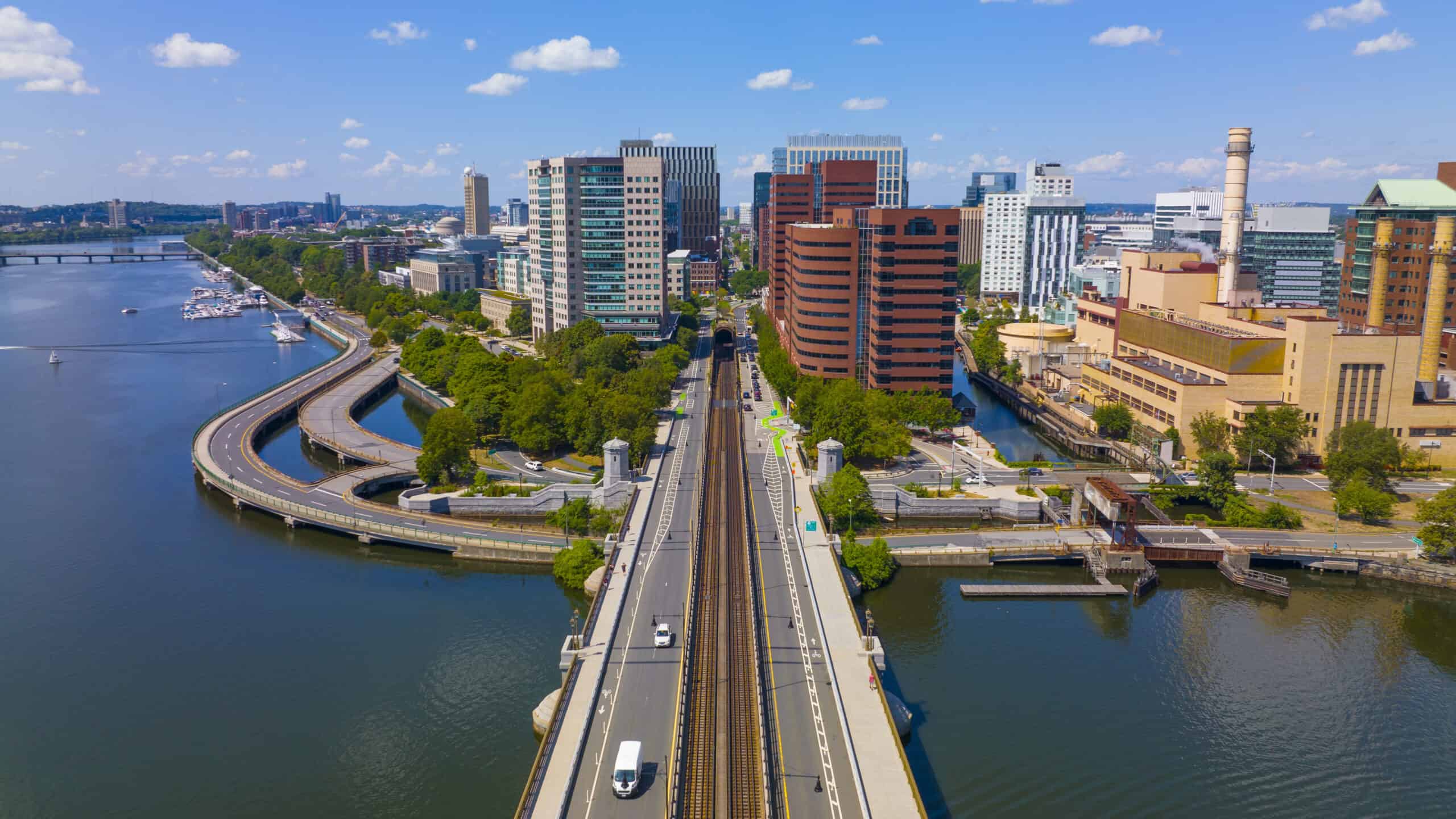
Massachusetts has been selected as one of three regional hubs that will anchor the Advanced Research Projects Agency for Health (ARPA-H) national health innovation network. To be located in Cambridge in the heart of Kendall Square, the Investor Catalyst hub will focus on speeding the transition of innovative ideas into practical, accessible solutions that deliver for Americans by engaging with researchers, entrepreneurs, and investors.
As MassBio CEO & President Kendalle Burling O’Connell said, “Massachusetts plays an outsized role in addressing the world’s unmet medical needs, and the Biden Administration’s decision to locate the Investor Catalyst Hub for ARPA-H here in Cambridge puts the agency in a position to tap into the talent, funding, institutions, and innovation that are our ecosystem’s greatest assets.”
This announcement was the culmination of 16 months of advocacy by organizations across the Massachusetts innovation ecosystem spearheaded by Governor Maura Healey and her administration. ARPA-H’s overarching goals are to catalyze game-changing breakthroughs in sciences and medicine and drive innovation of new ways to prevent, detect, and treat cancer, Alzheimer’s, diabetes, and other diseases.
While details about the hub’s presence here in Massachusetts remain to be determined, here are three observations right now:
No state unifies behind a goal like Massachusetts
Soon after President Biden announced the ARPA-H initiative, MassBio joined with other entities to form the Coalition for Health Advancement and Research in Massachusetts (or CHARM), an effort to align government, industry, and academia in pursuing any opportunities. This type of collaboration is nothing new for Massachusetts; in fact, that’s exactly how the state became the global capital of life sciences R&D. There’s no doubt CHARM’s efforts, those of the Massachusetts federal delegation, and the work done by the Healey administration is why Congress moved to ensure that ARPA-H looked beyond the D.C. beltway and ultimately opened a multi-phase site selection process earlier this year.
Once a proposal framework was announced, it was the Healey administration, the Mass. Life Sciences Center, and a consortium of industry leaders, hospitals, health centers, and research and academic institutions partnering with VentureWell, a nonprofit based in Hadley, Mass., with expertise in federal health care programs and complex program management, to officially seek the Catalyst Hub.
This was a big win for Team Massachusetts.
Innovation is at the core of our ecosystem and ARPA-H’s lofty goals
Within days of the site selection announcement, ARPA-H made a funding announcement that demonstrates how the goals of the federal agency align so well with the innovation that is happening right here in Massachusetts. Up to $37 million in funding was awarded to the Thymus Rejuvenation project, an effort led by Thymmune Therapeutics right here in Cambridge. The project aims to restore damaged or non-functional thymus tissue and the funding will help to advance the treatment toward clinical development and potential uses beyond the thymus.
“ARPA-H looks to support cutting-edge technologies like this one that, if successful, could have applications beyond just one disease,” explained Amy Jenkins, Ph.D., director of the ARPA-H Health Science Futures office.
Through the Open Broad Agency Announcement (Open BAA), ARPA-H is looking for proposals that investigate unconventional approaches and challenge accepted assumptions. The small and emerging biotechs that are here in Massachusetts—and the research labs in our hospitals and institutions like Harvard and MIT—are working on this groundbreaking type of discovery every day. We have a cross-sector ecosystem where the life sciences and technology collide, and the resulting patient-driven innovation is just what ARPA-H is looking to tap into to solve the nation’s toughest health challenges.
Patients will be the ultimate beneficiaries
Yes, having Cambridge selected for one of the hubs is a validation of all that we have built here and of the work of every player in the innovation ecosystem here. Yes, the agency is going to benefit from the proximity to the researchers, funders, and experts that work and live here. Yes, program directors will be able to tap into the unmatched expertise and decades-long experience of the people and organizations that have launched companies and won Nobel prizes.
But ultimately, it is the patients—Americans and those around the world—who will see their unmet medical needs addressed. Providing health solutions to all is what ARPA-H is charged with doing. They are looking for high-impact answers to hard problems. At the center of the campaign to bring ARPA-H here was our intimate knowledge of what this ecosystem can offer to an agency that wants to take chances.
As Kendalle said on the day of the announcement, our local biotechs stand ready to compete for the dollars that will help to unlock the cures and therapies that will change the course of human health.